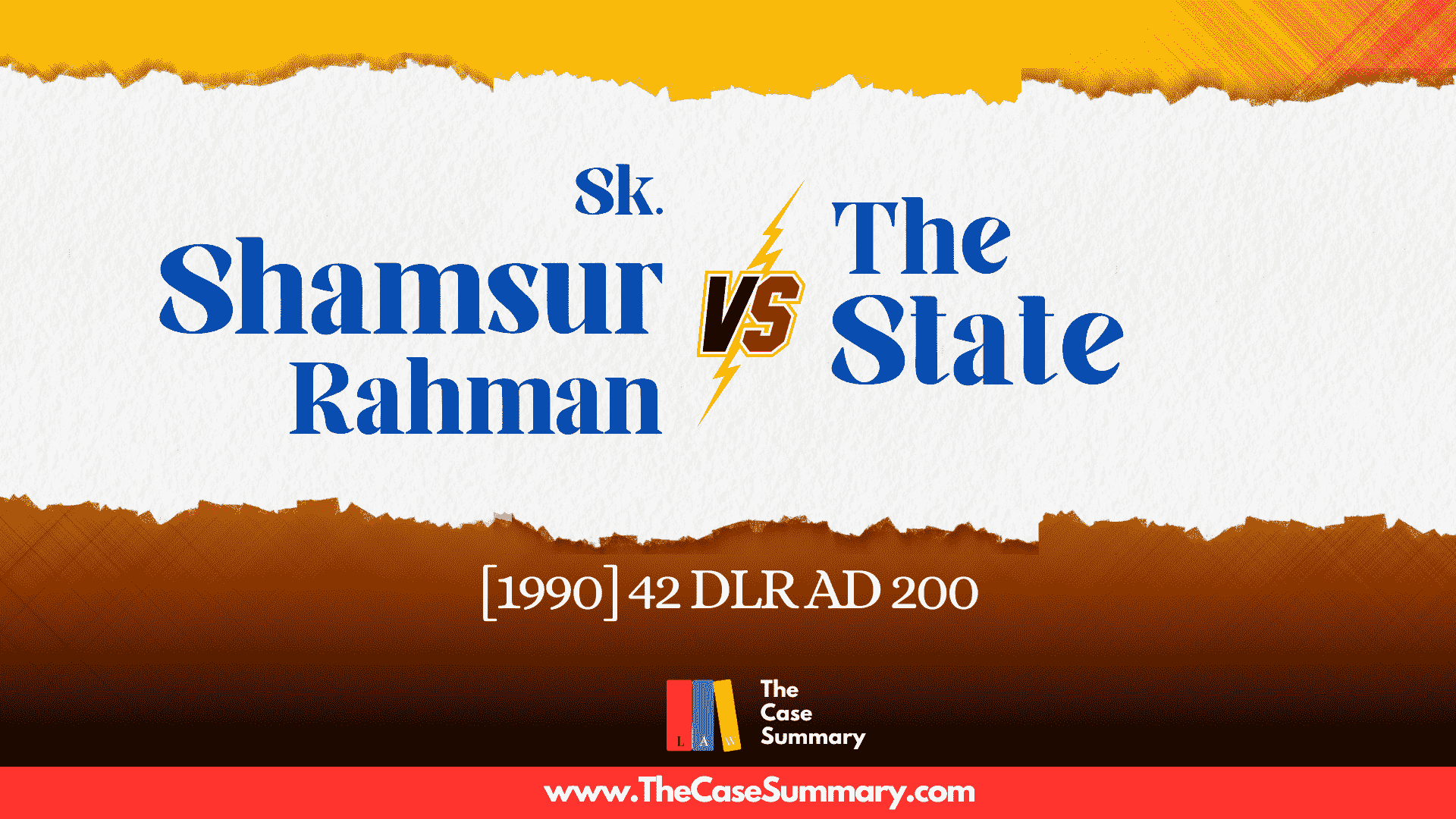Khaleda Akhtar vs State
Citation : [1985] 37 DLR 275
Jurisdiction : Bangladesh
Petitioner : Mrs. Khaleda Akhtar
Respondent : The State
Facts :
Based on secret information regarding the manufacture and storage of illegal drugs, the Detective Branch of the Dhaka Metropolitan Police raided the M/s Rana Research Laboratory. A huge quantity of banned drugs was found and confiscated during the raid. The entire incident was video-recorded by a correspondent of Bangladesh Television. Charges were brought under Section 16 of the Drugs (Control) Ordinance of 1982. During the trial, the prosecution aimed to present a video cassette as evidence which was permitted by the court.
This intended use of the video cassette as proof was challenged in the Dhaka Bench of the High Court by the petitioner Khaleda Akhtar. The question was specifically raised because there was doubt about whether a video cassette could be considered a ‘document’ under the definition provided in Section 3 of the Evidence Act of 1872. The petitioner argued that the video cassette was not admissible as evidence as it did not fall under the definition of ‘document’ according to the Act of 1872. In response, the Deputy Attorney-General on behalf of the prosecution argued that the video cassette contained information relevant to the case and should be admissible as evidence.
Issues :
1. Whether a video cassette can be considered a ‘document’ according to the law, and therefore be admissible as evidence in court.
Decisions :
The High Court evaluated the definitions of ‘document’ provided by the Evidence Act of 1872, the General Clauses Act of 1897 and the Penal Code of 1860. Upon such assessment, the Court liberally interpreted the word ‘matter’ under the context of the case. Citing judicial precedents from the Indian and Pakistani jurisdictions, the Court stated that audio tape records were considered documents and were admissible as evidence. The Court also stated that photographs were admissible as documentary evidence. Thus, the Court found no reason to exclude the recording of sound and pictures together from admissible evidence. Therefore, the High Court concluded that a video cassette was indeed a ‘document’ and could be admitted as evidence in court if it was relevant to the case.
In the absence of clear statutory provisions, this decision was an important leap forward for the jurisprudence of evidence in Bangladesh. However, there is no other reported example of another case adopting the arguments provided and established in this case in favour of making a video admissible as documentary evidence until later development was made in the statutory law itself. In 2022, ‘digital record’ or ‘electronic record’ was recognized as documents under Section 3 of the Evidence Act of 1872 by the enactment of the Evidence (Amendment) Act, 2022. Thus, currently, digital records including video records are considered as admissible documentary evidence by law.
Relevant Laws :
- The Penal Code, 1860
- Section : 29
- The Evidence Act, 1872
- Section : 3
- The General Clauses Act, 1897
- Section : 3(16)
- The Drugs (Control) Ordinance, 1982
- Section : 16
Author :
1. Rezwan Rasheed
Note : The Case Summary is a platform by the law students, for the law students. We aim to summarize the facts and decisions of various important cases in both Bangla and English with utmost caution. However, this platform is in no way a replacement for going through the complete judgements by the law students and we discourage any learner from relying on case summaries alone. Thank you



